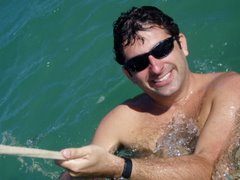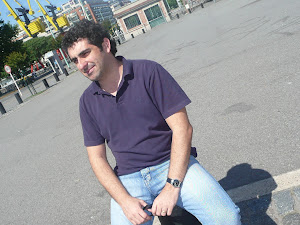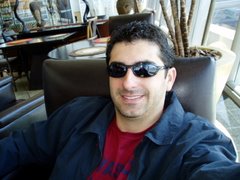sábado, 30 de janeiro de 2010
Fazendo negócios em Angola
Rising Angola
Oil, glorious oil
The country’s breakneck growth is slowly benefiting the masses
Jan 28th 2010 | LUANDA | From The Economist print edition
AFP

TWO years ago, oil-rich Angola was reckoned to have one of the world’s fastest-growing economies. In both 2006 and 2007 real GDP had surged by around 20%, and double-digit growth rates were widely predicted for at least the next five years. Then oil prices crashed with the global recession. Last year the economy is estimated to have grown, at best, by 1.5%. But it is bouncing back. Some say Angola will be among the world’s top five performers again this year, with growth exceeding 8%.
After four decades of strife, Angola was a basket case. A 14-year war of independence against its former Portuguese masters until 1975 had been followed by nearly three decades of fighting between the communist Popular Movement for the Liberation of Angola (MPLA) and Jonas Savimbi’s pro-Western National Union for the Total Independence of Angola (UNITA) that ended in 2002. Out of a population of 7m in 1980, some 1.5m were killed and more than 4m forced to flee their homes. A whole generation had missed their education. Infrastructure, political institutions and social services had to be rebuilt, often from scratch.
The pace of development since peace returned eight years ago has been staggering. Angola feels like a gigantic building site, as roads, ports, railways, hotels, shopping centres, hospitals, universities—even whole new towns—rise up out of the bush. The capital, Luanda, has changed out of all recognition, as the dilapidated red-tiled colonial buildings and encroaching slums make way for a forest of elegant high-rise hotels, offices and apartment blocks.
None of this would be possible without Angola’s vast oil reserves, estimated at 13 billion barrels. Discovered in the 1950s, oil was one of the few things that drew investment throughout the civil war. Production rose from 172,000 barrels a day in 1975 to 800,000 in 2002. Today, it stands at 1.9m, making Angola sub-Saharan Africa’s biggest producer after Nigeria. Oil accounts for more than half of the country’s GDP, 80% of the government’s revenues and 90% of export earnings.
Last year’s slump in oil prices from an average of nearly $100 a barrel in 2008 to just over $50 pushed Angola’s current account and budget into deficit for the first time since the war. Despite a rebound in oil prices, the ruling MPLA, now wedded to a market economy, is trying to slash public spending this year to 37% of GDP, down from last year’s 50%. Long resistant to outside interference, particularly from the West, it has also accepted a 27-month IMF standby loan of $1.4 billion.
Despite this dip in fortunes, the country has barely paused for breath, relying on international lines of credit for infrastructure projects, with China to the fore. Since 2002, China’s Eximbank has lent Angola $4.5 billion. The secretive China International Fund, which is privately owned, has provided another $3 billion; some say the figure may rise to $9 billion.
Angola is repaying all of this in oil, overtaking Saudi Arabia and Iran to become China’s biggest supplier. Two fellow Portuguese-speaking countries, Brazil and Portugal, have provided another $1.8 billion and $1.4 billion in credit lines. Foreign direct investment, at $15.5 billion in 2008, up from $6.8 billion in 2005, now accounts for over half the total for southern Africa. In the 1990s it averaged just $600m a year.
Yet Luanda is one of the world’s trickiest places to do business in. It is sticky, dirty, chaotic and hugely expensive for visitors (see article). Logistics are a nightmare. As the country has no manufacturing base to speak of, most items have to be imported, which pushes prices up. The ports are clogged. The rubbish-strewn streets, potholed and still usually made of mud, are jammed with traffic. Red tape snags almost every activity. Electricity is patchy. Taxes are low, with a top income-tax rate of 17% and a corporation tax of 35%, but they are hideously complex. There are few skilled locals. Corruption and nepotism are pervasive. Angola is near the bottom of the corruption-perceptions index published by Transparency International, a Berlin-based watchdog.
Moreover, the petrodollar influx has yet to improve ordinary Angolan lives very much. On paper, GDP a head (at purchasing-power parity) has more than doubled since 2002, to $6,300 in 2008, lifting its IMF ranking to 98th out of 181 countries measured, just above China. But last year’s UN human development index put Angola near the bottom in almost every category: life expectancy is 46 years; infant mortality is 180 per 1,000 live births (against less than ten in America and Europe); one-third of adults are illiterate. While the new elite lives sumptuously, two-thirds of the 17m Angolans survive on less than $2 a day. Civil and political liberty is limited.
Yet things are improving. The country’s first democratic elections in 16 years, held in 2008, were reasonably fair, with the MPLA winning more than 80% of the vote. The government-dominated press is becoming a bit freer, with independent weeklies and local radio stations beginning to speak out. Red tape is being cut. The port is being modernised and unclogged, partly by increasing the cost of storing containers. Hundreds of miles of new roads and rail track are speeding up transport. Landmines are steadily being removed from farmland that had gone to pot.
The government plans to build 1m homes for shack-dwellers by 2012. Teachers and doctors are being trained, children sent back to school, clinics opened, water-purification plants installed, electricity brought to villages and urban slums. José Eduardo dos Santos, Angola’s autocratic yet popular leader for the past 30 years, has even pledged—for the first time—to reduce corruption.
This brings a wry smile to those who see the president and his friends as the source of many of Angola’s problems. But businessmen hope his warning will have a salutary effect. As they continue to pour in, investors plainly think the opportunities outweigh the risks.
Readers' comments
The Economist welcomes your views.
Be the first to comment on this articl






